
Ananta Vasudeva Temple Bhubaneswar
A 13th-century Vaishnavite temple in Bhubaneswar, famed for its Krishna, Balarama, Subhadra idols and traditional 'Abhada' prasad.
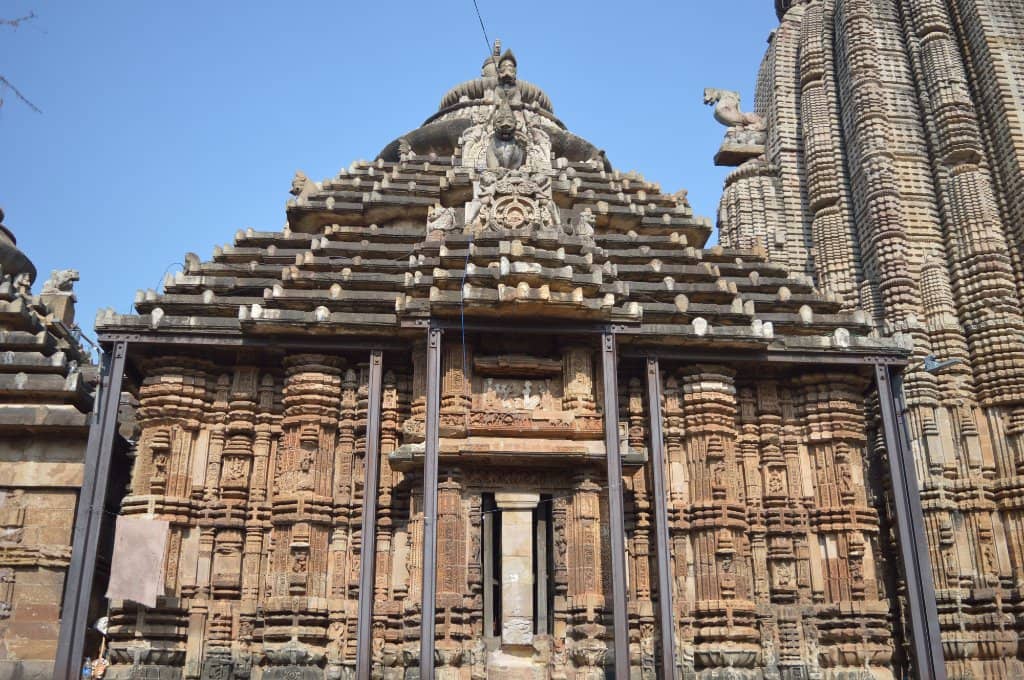
Highlights
Must-see attractions
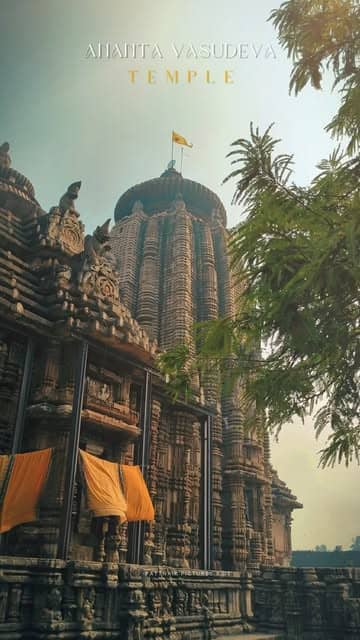
Social
From TikTok & Reddit
Best Time
Peaceful atmosphere

Ananta Vasudeva Temple Bhubaneswar
Best Time
Peaceful atmosphere

Highlights
Must-see attractions
A 13th-century Vaishnavite temple in Bhubaneswar, famed for its Krishna, Balarama, Subhadra idols and traditional 'Abhada' prasad.
"Experience the spiritual heart of Bhubaneswar with its rare Vaishnavite idols and delicious, traditional 'Abhada' prasad."
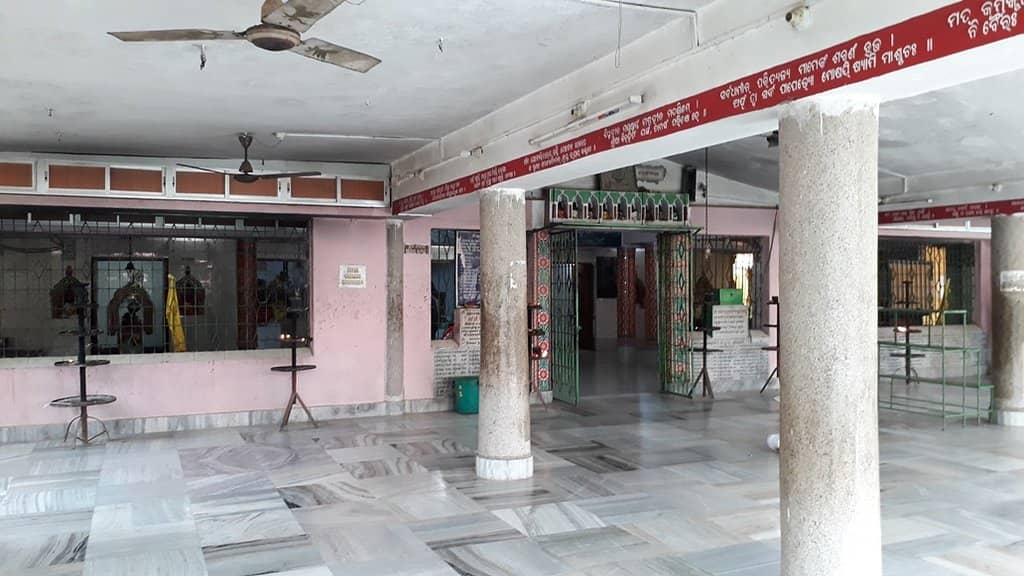
🎯 Visit Near Lingaraj Temple
Conveniently located near the famous Lingaraj Temple, combine your visits for a comprehensive temple tour.
🍽️ Savor the Abhada Prasad
Don't miss the delicious and sacred 'Abhada' served from 11 AM onwards. It's a must-try!
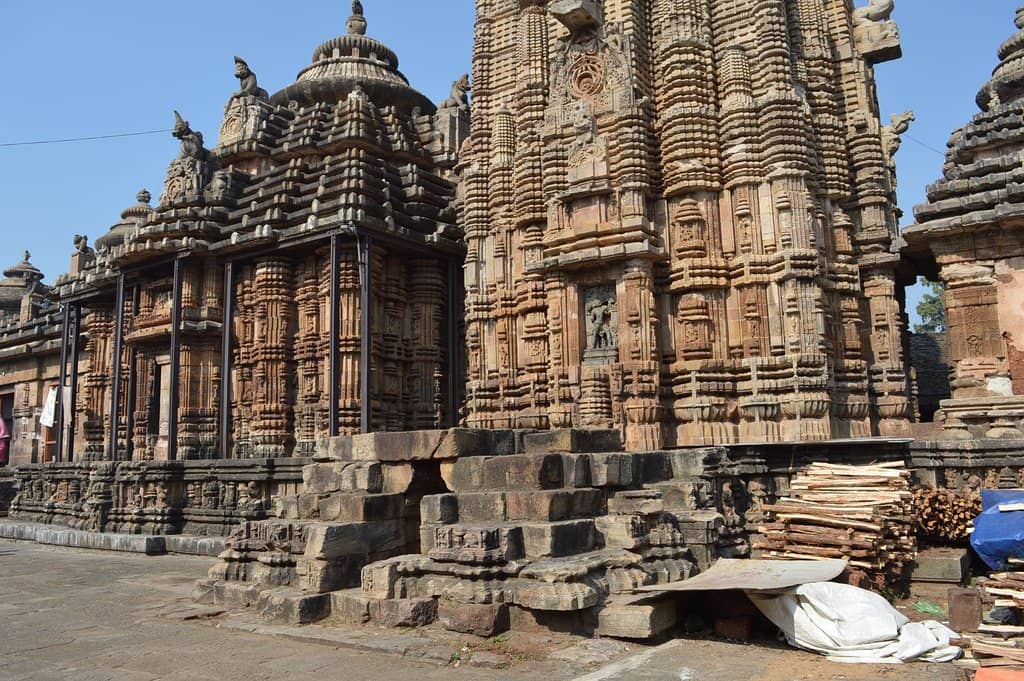
Highlights
Discover the most iconic attractions and experiences
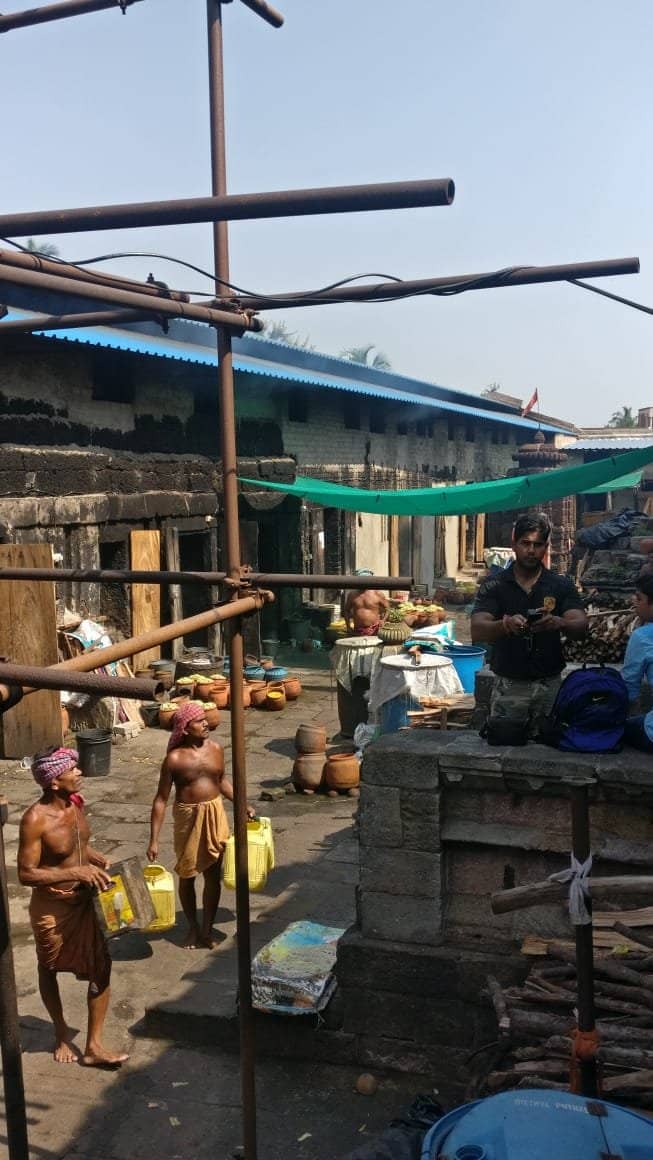
Idols of Krishna, Balarama, and Subhadra
Sanctum Sanctorum
Marvel at the complete murtis of Lord Krishna, Balarama, and Goddess Subhadra, a rare sight in Bhubaneswar.
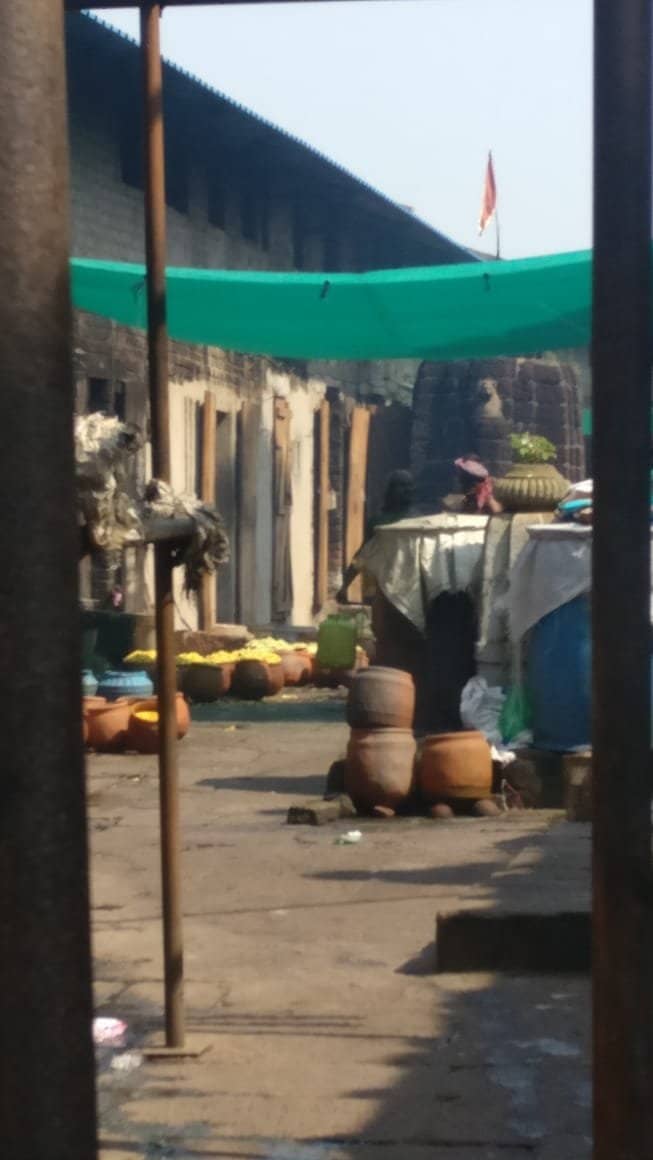
Traditional 'Abhada' Prasad
Temple Kitchen
Taste the sacred 'Abhada' (temple food) prepared in earthen pots, a culinary tradition echoing Puri's Mahaprasad.
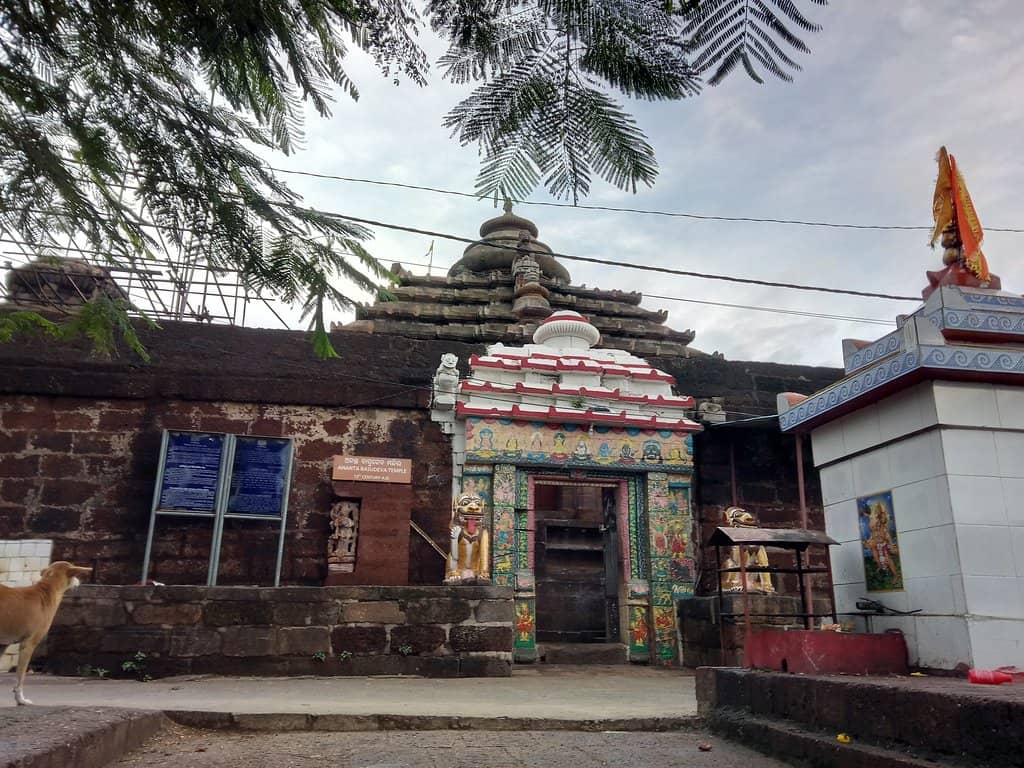
Kalinga Architecture
Temple Exterior and Interior
Admire the intricate stone carvings and classic Kalinga style architecture, reminiscent of the nearby Lingaraj Temple.
Plans like a pro.
Thinks like you
Planning Your Visit
Timing Your Visit for Tranquility
Savoring the Sacred Prasad
Best Times
Insider Tips
from TikTok, Instagram & Reddit
🎯 Visit Near Lingaraj Temple
Conveniently located near the famous Lingaraj Temple, combine your visits for a comprehensive temple tour.
🍽️ Savor the Abhada Prasad
Don't miss the delicious and sacred 'Abhada' served from 11 AM onwards. It's a must-try!
📸 Respectful Photography
Capture the temple's beauty, but be mindful of restrictions inside the sanctum.
👟 Comfortable Footwear
You'll be doing a lot of walking, so wear comfortable shoes for exploring the temple complex.
Tips
from all over the internet
🎯 Visit Near Lingaraj Temple
Conveniently located near the famous Lingaraj Temple, combine your visits for a comprehensive temple tour.
🍽️ Savor the Abhada Prasad
Don't miss the delicious and sacred 'Abhada' served from 11 AM onwards. It's a must-try!
📸 Respectful Photography
Capture the temple's beauty, but be mindful of restrictions inside the sanctum.
👟 Comfortable Footwear
You'll be doing a lot of walking, so wear comfortable shoes for exploring the temple complex.
What Travellers Say
Reviews Summary
Visitors praise the Ananta Vasudeva Temple for its spiritual ambiance, beautiful architecture, and the unique 'Abhada' prasad. It's highlighted as a rare Vaishnavite shrine in Bhubaneswar, offering a peaceful experience and a glimpse into rich Odia traditions. Some find the temple less grand than Lingaraj but appreciate its distinct devotional focus and culinary offerings.
"The Ananta Basudeva Temple of Bhubaneswar stands as a rare symbol of Vaishnavite devotion within a city otherwise dominated by temples dedicated to Lord Shiva. Erected in 1278 CE by Queen Chandrika Devi of the Eastern Ganga dynasty, the temple was envisioned as a sacred abode for Lord Krishna in his form as Ananta Basudeva, accompanied by his siblings Balarama and Subhadra. Its architecture closely resembles that of the grand Lingaraj Temple situated nearby, reflecting the classic Kalinga style with its towering spire, ornate carvings, and stone craftsmanship. Yet, while the Lingaraj Temple resonates with Shaivite chants, Ananta Basudeva echoes with the mellifluous hymns of Vishnu.
One of the most distinctive aspects of the temple is its ancient kitchen tradition. Unlike most North Indian temples where offerings are symbolic, here food is cooked in large earthen pots over wood-fired stoves, much like the Mahaprasad of the Jagannath Temple in Puri. This sacred food, known as Abhada, is prepared not just by priests but often with the assistance of local women, turning worship into a communal act of devotion. The aroma of steaming rice and vegetables mingles with incense smoke, giving the temple a warmth that feels both spiritual and homely.
Beyond its historical legacy, the temple is enveloped in fascinating folklore that deepens its mystique. Local legends claim that this very site marks the place where the mortal remains of Lord Krishna were cremated after his earthly departure, as narrated in certain vernacular retellings of the Mahabharata. This belief transforms the temple from a mere place of worship into a shrine of cosmic closure—a final chapter in the divine saga of Krishna. Another popular tale speaks of celestial serpents that once guarded the sanctum; it is said that when invaders tried to desecrate the temple, mysterious illnesses befell them, forcing them to retreat. Even today, devotees point to stone carvings of serpents as silent sentinels of that legend.
The temple continues to be a vibrant center of culture and faith. During Janmashtami, the birth of Krishna is celebrated not only with rituals but with playful dramatizations drawn from both scripture and village imagination. Worshippers narrate stories of young Krishna stealing butter, teasing gopis, and dancing on the serpent Kaliya—all retold with laughter and reverence in equal measure. Thus, Ananta Basudeva Temple is not just a repository of history; it is a living tapestry where devotion mingles with myth, and stone meets soul."
Indronil Ghosh
"Nestled amidst the cultural heartland of Odisha, this historic temple stands as a timeless testimony to the region’s rich architectural and spiritual heritage. Carved intricately from stone, the temple reflects the unmatched craftsmanship of ancient artisans. Every wall, pillar, and sculpture speaks a silent story from centuries past, showcasing depictions of gods, celestial beings, animals, and mythological scenes with breathtaking detail and symmetry.
The temple’s towering spire reaches towards the sky, symbolizing a bridge between the earth and the divine. As sunlight falls upon its surfaces, the carvings come alive with shadows and light, creating a magical atmosphere that enchants every visitor. The structure is not just a place of worship, but also a remarkable example of engineering and design from an era where tools were limited but imagination was boundless.
Surrounded by natural beauty and calmness, the temple complex often fills with the soft sounds of bells, chants, and the fragrance of incense. Pilgrims and tourists alike are drawn to its aura — seeking blessings, inner peace, or simply to witness the marvel of its existence. The spiritual energy around it is powerful, yet deeply comforting.
Despite the passage of time, the temple remains well-preserved, echoing the glory of a bygone civilization that valued devotion, art, and architectural excellence. Whether one is religious or not, standing in the shadow of this grand monument stirs a deep respect for history and heritage. It is a living relic of faith, devotion, and timeless cultural pride."
Vicky Patro
"This is a very beautiful temple. When you go inside and see the idol, your heart will be filled with joy. It is such a beautiful idol. This temple is counted among the oldest temples in Bhubaneswar. This temple has a history of its own.The architecture of this temple is also designed very beautifully. Whoever has built it has done it very beautifully.Next, if you are going to visit Lingaraj Temple, then you must visit here before going to Lingaraj Temple. This is a very good temple."
Lakshmi Raj
What People Like
What People Dislike
Frequently Asked Questions
🚇 🗺️ Getting There
The Ananta Vasudeva Temple is located in the Old Town of Bhubaneswar, near the Lingaraj Temple and beside Bindusagar Lake. You can easily reach it by auto-rickshaw or taxi from anywhere in the city. It's a well-known landmark, so most drivers will know the way.
While direct bus routes might be limited to the Old Town area, auto-rickshaws and cycle rickshaws are readily available and offer an affordable way to reach the temple from major city points.
The two temples are very close to each other, often within walking distance. A short auto-rickshaw ride is also a quick and easy option if you prefer not to walk.
Limited parking is usually available near the temple complex, especially for two-wheelers and cars. However, it can get crowded, so arriving early is advisable.
Official guides may not be readily available at this specific temple, but local priests or knowledgeable individuals might offer insights. It's also beneficial to do some research beforehand.
🎫 🎫 Tickets & Entry
No, there is typically no entry fee to visit the Ananta Vasudeva Temple. It is a place of worship open to all.
The temple is generally open from early morning until evening. Specific timings can vary, but it's usually accessible from around 6 AM to 9 PM.
To experience a more peaceful visit, aim for weekday mornings. Weekends and festival days, especially Janmashtami, tend to be more crowded.
As there is no entry fee, advance booking is not required. You can visit anytime during the opening hours.
Photography is usually permitted in the outer premises, but it's often restricted inside the main sanctum. Always check for signage or ask temple authorities.
🎫 🧭 Onsite Experience
The temple houses complete murtis of Lord Krishna, Lord Balarama, and Goddess Subhadra, which is a unique feature in Bhubaneswar, a city predominantly known for Shiva temples.
'Abhada' is the sacred prasad (food offering) prepared in traditional earthen pots. It's typically available from around 11 AM or 12:30 PM onwards and is a culinary highlight.
The temple showcases the classic Kalinga architectural style, with intricate stone carvings and a towering spire, similar to the nearby Lingaraj Temple.
Local legends suggest this might be where Lord Krishna's mortal remains were cremated, and ancient tales speak of serpent guardians protecting the shrine.
It's one of the few prominent Vaishnavite temples in Bhubaneswar, offering a different spiritual focus compared to the city's many Shaivite shrines. It's also a living center of tradition and faith.
🍽️ 🍽️ Food & Dining
The most recommended dining experience is the 'Abhada' prasad served within the temple premises. For other options, you'll find local eateries and restaurants in the Old Town area.
The 'Abhada' typically includes steamed rice, sweet dal, vegetable curries, and sometimes sweets, all prepared with devotion in traditional earthen pots.
The 'Abhada' is generally prepared with mild spices, focusing on traditional flavors. It's designed to be digestible and satisfying.
Yes, the 'Abhada' is available for purchase and can be taken away. It's a popular item for devotees and visitors alike.
Bhubaneswar, being a temple city, offers numerous vegetarian dining options. You can find local Odia cuisine and other vegetarian dishes in restaurants around the Old Town.
📸 📸 Photography
The temple's intricate carvings, the Bindusagar Lake nearby, and the overall architecture offer great photographic opportunities. The entrance and outer courtyards are usually good for shots.
Photography is generally prohibited inside the sanctum sanctorum to maintain the sanctity of the place. Always look for signs or ask for permission.
Early morning or late afternoon light can create beautiful shadows and highlight the temple's carvings. Golden hour is particularly stunning.
Look for depictions of gods, celestial beings, animals, and mythological scenes. The serpent carvings are also noteworthy due to local legends.
Drone usage is typically restricted in and around religious sites and historical monuments. It's best to avoid it unless you have explicit permission from authorities.
For Different Travelers
Tailored advice for your travel style
👨👩👧 Families with Kids
It's advisable to visit during less crowded hours to ensure a more comfortable experience for children. Comfortable footwear is a must, as there will be walking involved. Keep an eye on younger children, especially near the lake and within the temple complex.
🙏 Devotees and Spiritual Seekers
The legends and historical significance of the temple add depth to the spiritual journey. Participating in the rituals or simply meditating in the peaceful surroundings can be a deeply fulfilling experience. The temple's connection to the 'Abhada' tradition also provides a tangible link to ancient practices.
🏛️ History and Architecture Enthusiasts
History enthusiasts can delve into the temple's 13th-century origins, its construction by Queen Chandrika Devi, and its unique position as a Vaishnavite shrine. The legends associated with the temple, such as its connection to Lord Krishna's cremation or the serpent guardians, add layers of historical and cultural intrigue.
Deep Dives
In-depth insights and expert knowledge
The Sacred 'Abhada' Tradition
The 'Abhada' is typically available from around 11 AM or 12:30 PM and is a must-try for visitors. It's a taste of authentic Odia cuisine prepared with devotion and adherence to ancient rituals. The meal usually comprises steamed rice, a sweet dal, vegetable curries, and sometimes traditional sweets. It's not just a meal but an experience that connects visitors to the temple's centuries-old heritage and the spiritual significance of food offerings.
This tradition highlights the temple's role as a vibrant center of culture and faith, where culinary practices are deeply intertwined with religious observance. The preparation and distribution of 'Abhada' are a testament to the enduring legacy of Odia temple traditions and the community's involvement in preserving them.
Architectural Marvels and Legends
Beyond its aesthetic appeal, the temple is steeped in fascinating folklore. One popular legend suggests that this site marks the cremation ground of Lord Krishna's mortal remains, adding a layer of cosmic significance to the shrine. Another tale speaks of celestial serpents that once guarded the temple, deterring invaders with mysterious illnesses. These stories, passed down through generations, contribute to the temple's mystique and its enduring spiritual aura.
The temple's construction in the 13th century by Queen Chandrika Devi signifies its importance as a rare Vaishnavite shrine in a city predominantly known for its Shaivite temples. This makes it a unique spiritual destination, offering a different devotional experience and a glimpse into the diverse religious landscape of ancient Odisha.
A Rare Vaishnavite Sanctuary
The temple's unique focus on Vishnu worship, alongside his siblings Balarama and Subhadra, offers a different spiritual perspective compared to the Shaivite dominance elsewhere in the city. It provides a serene space for devotees and visitors to connect with the divine in a form that resonates with peace and divine playfulness.
Its presence enriches Bhubaneswar's religious tapestry, showcasing that the city's spiritual landscape is not monolithic but a vibrant blend of different devotional traditions. Visiting Ananta Vasudeva Temple offers a chance to appreciate this diversity and experience a different facet of Hindu worship.



Social
from TikTok, Instagram & Reddit